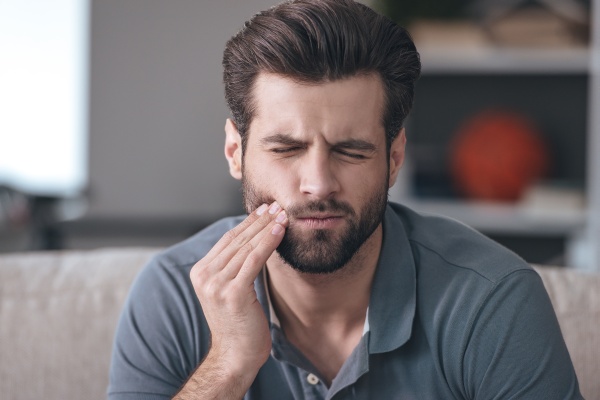What To Do if You Are Having a Dental Emergency

Like any emergency, a dental emergency can be a scary experience. Whether it is a cracked, chipped or lost tooth, a person is likely to experience two things: The first is pain and the second is fear — fear that the smile will never be whole again. Fortunately, there are dentists out there who specialize in dental emergencies and who are prepared to alleviate the pain, restore the smile and provide peace of mind.
Differentiate between an urgent and non-urgent dental emergency
Though a person may fear that all dental emergencies are urgent, the truth is that some emergencies require immediate attention while others can wait until the next business day to be treated. It is important to understand the differences between the two so that dentists are not overwhelmed with non-emergencies at all hours of the day, night and week.
The following are examples of emergency dental issues that should get immediate care:
- A loose or knocked-out permanent tooth
- Bleeding that will not ebb
- Severe swelling
- Painful toothache
- Injured or broken jaw
These dental issues should be dealt with right away. A person experiencing any of these issues should contact the nearest emergency dentist right away.
Most general dentists who handle emergencies have a hotline number listed on the practice’s website. If the dentist does not answer, the injured person should visit the local emergency room.
Though individuals should contact a dentist for non-urgent dental emergencies, it is okay to wait until the following business day to do so. Examples of non-dental emergencies include a cracked or broken tooth, a lost filling, bridge or crown, dull tooth ache or food stuck between the teeth.
What to do at home in the meantime
Regardless of the type of dental emergency a person experiences, there are actions that can be taken at home to deal with the situation and alleviate the pain. First and foremost, the injured person should remain calm. When the body senses anxiety, it triggers a number of adverse responses that may make the emergency worse.
Swishing with warm saltwater can help alleviate the swelling and pain associated with a dental emergency. If a person loses a tooth, it helps to put the tooth in a glass of milk to preserve it. A cold compress can help to numb irritation, reduce swelling and stop bleeding, while rinsing with hydrogen peroxide can help to alleviate irritation. If the issue stems from food stuck between the teeth, flossing should help dislodge it.
Conclusion
Dental emergencies are never fun, but individuals can make them less stressful by knowing how to respond in the event that one occurs. From differentiating between an urgent and non-urgent dental emergency to remaining calm to knowing what steps to take to alleviate pain, you can work through the next dental emergency with ease. It can also be helpful to discuss an action plan with an emergency dentist, just in case.
Request an appointment here: https://fortleefamilydental.com or call Fort Lee Family Dental at (201) 620-9772 for an appointment in our Fort Lee office.
Check out what others are saying about our services on Yelp: Read our Yelp reviews.
Recent Posts
An emergency dentist can provide quick relief for any urgent dental issue. But not all dental issues need immediate resolution. Knowing when to visit this dental care provider can give you the right type of care. Here are the details on when to see your emergency dentist.This condition is also called a partially dislodged tooth.…
A tooth abscess is a dental emergency because it has a risk of the infection expanding to other parts of the body. If an abscess spreads to the brain, it can have life-threatening effects.Abscesses can be incredibly painful, and the pain is often accompanied by swelling. The severity of the pain and swelling is often…
If a patient has cracked, chipped, or broken a tooth, a licensed emergency dentist can provide quick relief in a variety of ways and ultimately repair the tooth to make it look whole again. This type of tooth damage can happen to anyone, but a person may be more at risk for this type of…
While it is always a good idea to have an emergency dentist on call, individuals can avoid a dental emergency and all the pain, cost and hassle that comes with one by taking preventative measures. In many cases, this simply entails adopting healthy lifestyle habits.Dental emergencies, which range from toothache to fractured teeth to abscesses,…


